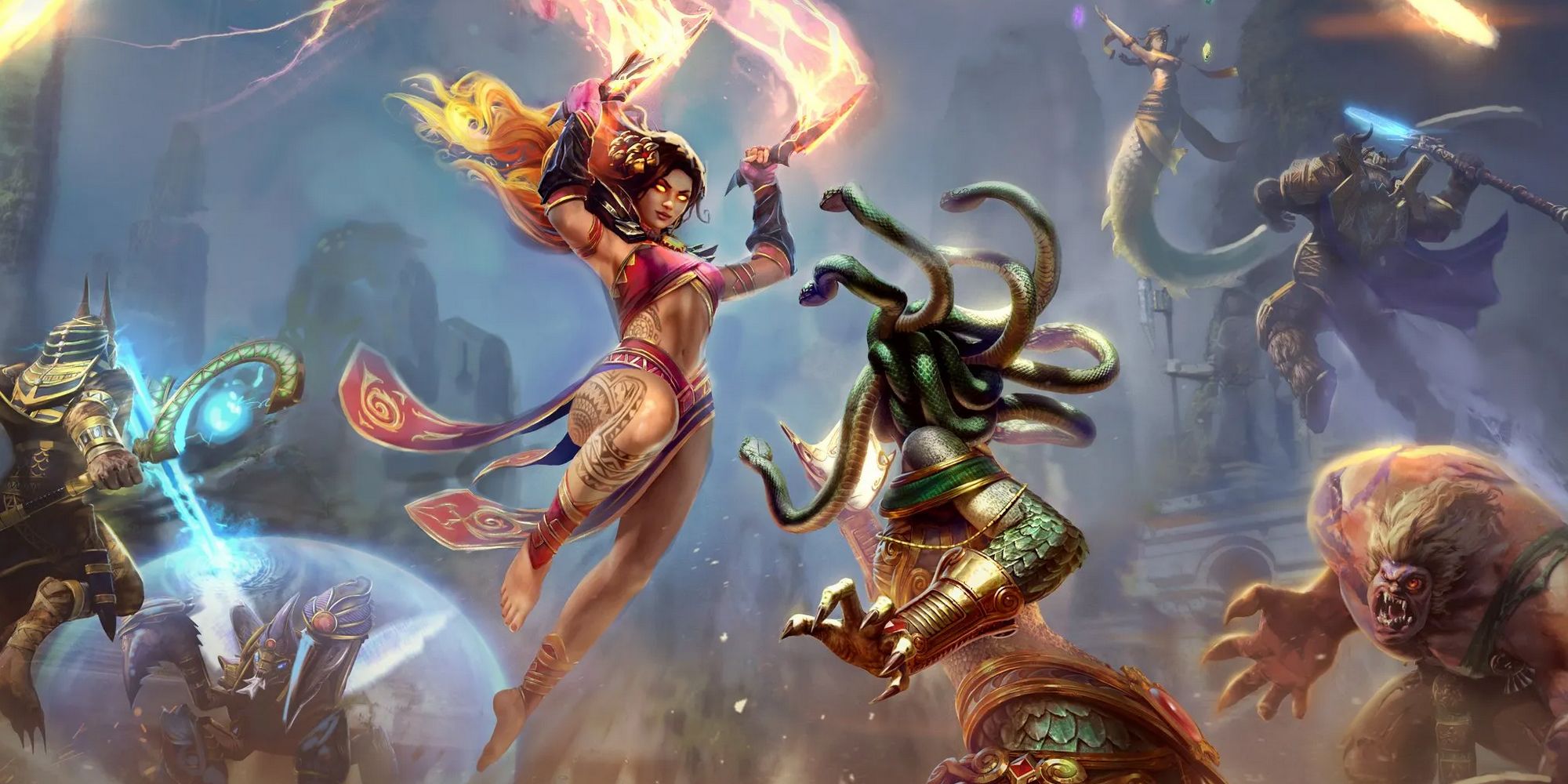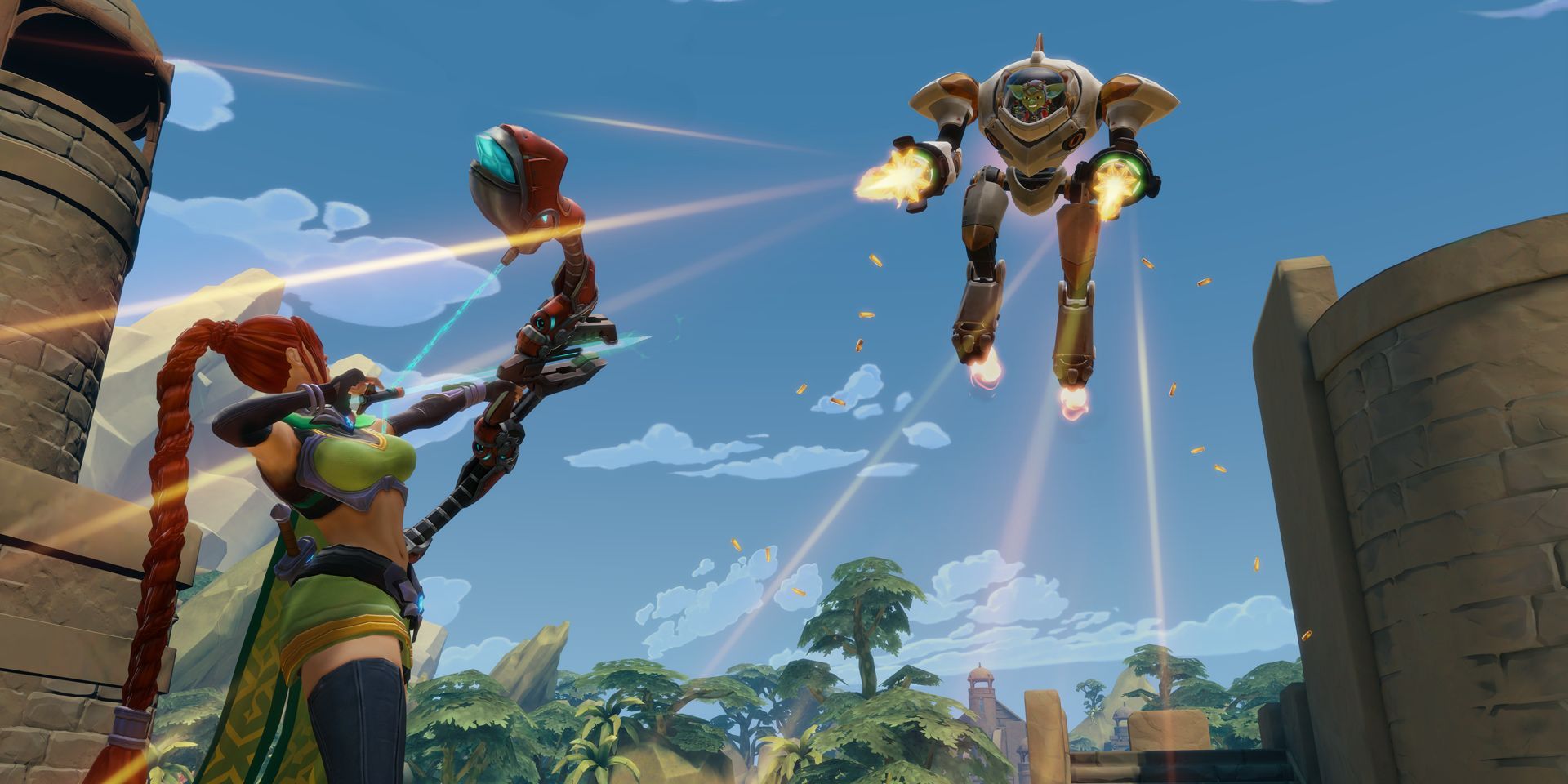Composer Andrea Bellucci Compares Working On Game vs Film Soundtracks

[ad_1]
Andrea Bellucci is an experienced composer across various forms of media who has been entrusted with developing the musical identity of dozens of games, films, television shows, and other projects. Most noteworthy among video games, he’s worked on major titles like Riot Games’ League of Legends and Hi-Rez Studios’ Smite and Paladins, while also having a role in Skydance Interactive’s highly-anticipated upcoming VR game Behemoth.
In an interview with Game Rant, Bellucci spoke about his experience working on both films and games over the last decade, and how he approaches creating music for interactive and non-interactive entertainment. Bellucci noted that although his approach to film and games is very similar on an artistic level, video games often present a few additional technical challenges on the way to creating an immersive listening experience for players.
Video Game and Film Soundtracks Are About Storytelling
Bellucci pointed out that video games and film music both have one major thing in common: the music is part of the storytelling, so his compositions are primarily driven by how he feels the music should reflect on events in the game. No matter how simple or complex the story in question is, Bellucci’s goal is to be a voice that effectively expresses the game or film’s events while establishing each project’s individuality.
From a creative point of view, they are very similar because, at the end of the day, you have to deal with the story. Anytime you write something, it’s story-driven music, even if it’s for a simple game. It’s just about giving voice to that project, and that could be the same with films or TV shows.
Because the goal is mostly the same across film and games, many of the best game soundtracks are practically indistinguishable from those of film and are often just as iconic. The Gregorian chant melody from the Halo theme, for example, is almost as unmistakable as the theme from Star Wars‘ opening crawl, and composers like Bellucci are an invaluable resource to storytellers, no matter the format.
Looping Video Game Soundtracks Call For A Unique Approach
On the technical side, Bellucci touched on some of the complications that video game composers face compared to film or television projects. Video game music often has to be reusable throughout the game and also has to be responsive to the dynamics of gameplay. One of Bellucci’s methods is to employ clever use of layered tracks that enable the same song to subtly shift in intensity or tone depending on the state of the game.
From a technical point of view, I really appreciate this aspect of game music where you have more rules to follow because you have to make sure that you make something that is usable for the players. It’s interactive music, so it’s not something that you just put on the scene, it’s something that the player plays with.
In a way, you have more rules to deal with, but to me, it feels like you have even more ground to play with your own elements and tools to make sure that that single loop makes sense with the next one. Then you have to create some sort of closing and beginning section for any kind of music and they have to work together. They have to be connected at all times. That’s something that really fascinates me: the ability to write something that’s always effective and usable from the first level of the game up to the final boss.
Game music frequently needs to loop endlessly, and Bellucci has to be particularly creative in his songwriting to compose tracks that never end and never cease to be interesting. This often extends to large sections of the soundtrack, with each song thoughtfully connecting to the others at their beginning and end points. This is a unique skill that game composers need to hone, and a well-executed loop by a gifted composer can make the difference between a beautiful atmospheric accompaniment and jarring repetition.
Source link

